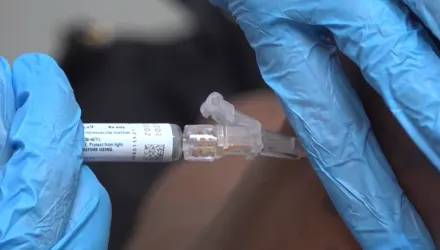In an era when public trust in health institutions is already fragile, the recent overhaul of the Centers for Disease Control and Prevention’s Advisory Committee on Immunization Practices (ACIP) has only deepened concern.
ACIP has long stood as one of the nation’s most influential scientific bodies, shaping vaccine policy for decades. Its members have traditionally included leading experts in pediatrics, immunology, epidemiology, infectious disease, and public health, individuals whose clinical and research credentials guided decisions that affect every American. These include which vaccines are recommended, who should receive them, how they’re covered by insurance, and how they’re integrated into routine care.
That tradition of scientific rigor is now at risk. The complete replacement of the committee’s membership, not for scientific shortcomings, but seemingly for ideological alignment, marks a stark departure from evidence-based policymaking.
At its most recent meeting, several newly appointed members demonstrated a limited understanding of basic scientific principles, including how vaccines work and how clinical trials are designed. Instead of engaging in rigorous, data-driven deliberation, some promoted misinformation and sought to legitimize long-debunked claims. This not only undermines the committee’s credibility but threatens the integrity of a public health system that has protected millions.
What hasn’t changed, however, is the science. Vaccines remain among the most powerful and life-saving interventions in modern medicine. According to recent research, immunization programs have saved an estimated 154 million lives globally since 1974, an extraordinary testament to their impact.
Let me be clear: the data haven’t changed. The science remains sound. But the systems designed to communicate and implement that science are now in question. When public health decisions are driven by ideology rather than evidence, the public pays the price.
If you’re unsure where to turn for trustworthy information, you’re not alone—and you’re not without options. Many credible, science-based institutions continue to offer reliable, up-to-date vaccine guidance. These are the sources I recommend:
Where to Find Trusted Vaccine Information
- American Academy of Pediatrics (AAP): Authoritative guidance on childhood immunizations, tailored for both clinicians and caregivers.
- American Medical Association (AMA) & American College of Physicians (ACP): Reliable resources for adult vaccine recommendations and clinical reference.
- American College of Obstetricians and Gynecologists (ACOG): Evidence-based information on vaccines during pregnancy and postpartum.
- National Foundation for Infectious Diseases (NFID): Offers expert commentary, webinars, and accessible summaries on immunizations.
- Academic Medical Centers: Institutions such as Mayo Clinic, Johns Hopkins University, Children’s Hospital of Philadelphia’s Vaccine Education Center, and the University of Minnesota’s CIDRAP continue to provide clear, science-backed guidance.
- Your healthcare provider: For personal questions and recommendations, consult your physician or care team. They remain an essential source of evidence-based, individualized advice.
Now is not the time to retreat from science. It is the time to elevate it. The facts are clear. The data are strong. And yes - the experts are still here.



